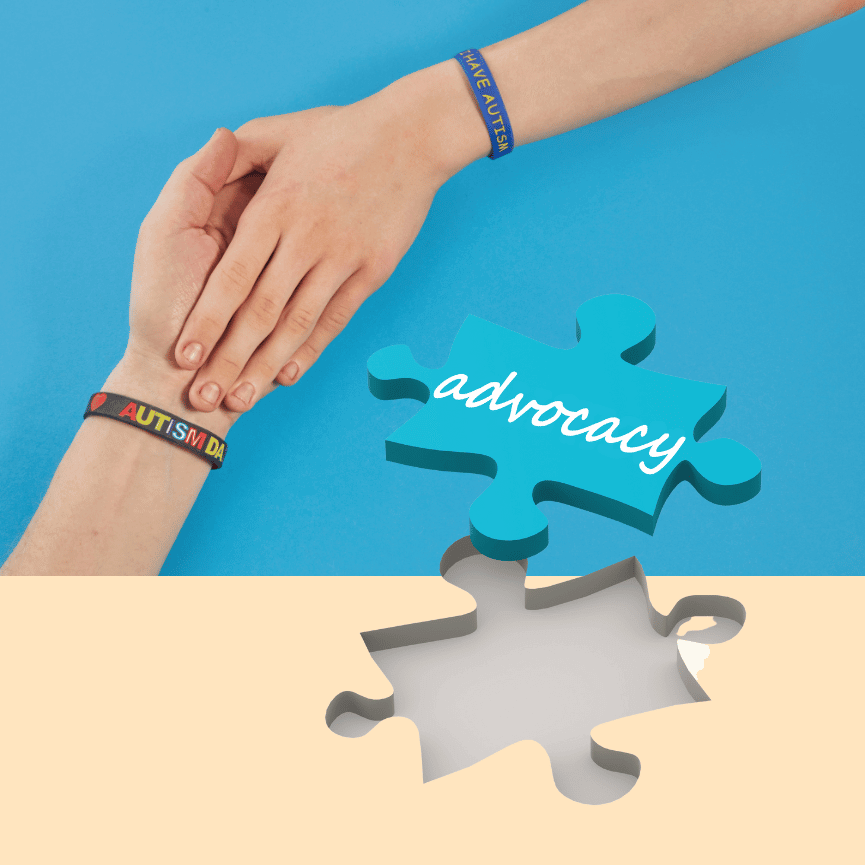
- Aug 01, 2024
- 117 Views
- 0 Comments
The Transformative Power Of Autism Advocacy
The Power of Autism Advocacy: Stories of Change and Inspiration
Autism advocacy has profoundly impacted the lives of countless individuals by fostering understanding, acceptance, and support for autistic people. Through compelling stories of change and inspiration, we can see the profound effect advocacy has on individuals, families, and communities. These narratives not only highlight the struggles but also celebrate the triumphs and resilience of those involved in the autism advocacy movement.
What is Autism Advocacy?
Autism advocacy involves concerted efforts to promote the rights, needs, and voices of autistic individuals. It encompasses a broad range of activities, including raising awareness about autism, influencing public policies, and providing essential support to autistic individuals and their families. The core goal is to create a more inclusive society where autistic individuals can thrive and be accepted for who they are.
Autism advocacy often includes educational initiatives aimed at debunking myths and stereotypes about autism, thus fostering a better understanding of the condition. It also involves lobbying for better services and support systems, such as accessible education, healthcare, and employment opportunities for autistic people.
The Evolution of Autism Advocacy
The history of autism advocacy is marked by significant changes and milestones. In the early days, advocacy was primarily led by parents and medical professionals who sought to understand and support their autistic children. These early advocates laid the groundwork for future efforts by raising awareness and pushing for basic services and rights.
As awareness of autism grew, so did the advocacy movement. Key milestones include the establishment of Autism Awareness Month in April, which aims to increase public awareness about autism and promote acceptance. Legislative achievements, such as the Americans with Disabilities Act (ADA) and the Autism CARES Act, have been pivotal in securing rights and funding for autistic individuals.
The Role of Parents in Autism Advocacy
Parents of autistic children often become passionate advocates, driven by their personal experiences and deep love for their children. Their advocacy efforts typically begin with a desire to secure the best possible resources and support for their children. Over time, many parents extend their efforts to help other families and push for broader societal changes.
Personal stories from parents highlight the challenges they face, such as navigating the educational system, securing appropriate medical care, and fighting against societal stigma. These stories also showcase their triumphs, like successfully advocating for inclusive education policies or creating support networks for other parents.
One inspiring example is that of Judy Heumann, a mother who, after her son's autism diagnosis, became a tireless advocate for inclusive education and autism awareness. Her efforts have led to significant policy changes and increased support for autistic children in schools.
Autistic Individuals Leading the Charge
Self-advocacy by autistic individuals is at the heart of the autism advocacy movement. Autistic advocates bring invaluable perspectives and firsthand experiences, making their contributions crucial to the success of advocacy efforts. Their stories highlight the importance of self-representation and the need for society to listen to and respect autistic voices.
Figures like Temple Grandin, an autistic professor and animal behavior expert, have shared their unique perspectives and challenges. Grandin's advocacy work has raised awareness about the abilities and potential of autistic individuals, challenging misconceptions and promoting acceptance.
Another notable self-advocate is Amy Sequenzia, a non-speaking autistic writer and activist who has used her platform to educate others about the diversity within the autism spectrum and the importance of respecting neurodiversity.
Community and Organizational Efforts
Community and organizational efforts play a crucial role in autism advocacy. Various organizations work tirelessly to support autistic individuals and their families, raise awareness, and influence policy changes. These organizations often collaborate with communities to provide resources, support, and educational initiatives.
Notable organizations like Autism Speaks, the Autism Society of America, and the Autistic Self Advocacy Network (ASAN) have made significant contributions to the advocacy landscape. They offer programs, resources, and support services that benefit autistic individuals and their families. These organizations also play a key role in organizing awareness campaigns and lobbying for legislative changes.
The Power of Social Media in Advocacy
Social media has revolutionized autism advocacy by providing a platform for voices to be heard globally. Platforms like Twitter, Facebook, and Instagram allow advocates to share their stories, connect with others, and mobilize support for various causes. Hashtags like #AutismAcceptance and #ActuallyAutistic have created vibrant online communities that drive awareness and support.
Social media campaigns have led to increased visibility for autism-related issues and have mobilized support for legislative changes and public awareness initiatives. For example, the #LightItUpBlue campaign, initiated by Autism Speaks, encourages individuals and organizations to wear blue and illuminate buildings in blue light to raise awareness during Autism Awareness Month.
Policy Changes and Legislative Wins
Advocacy efforts have led to crucial policy changes that have significantly impacted the lives of autistic individuals. These legislative wins are often the result of persistent and passionate campaigning by advocates who share their personal stories with lawmakers and the public.
Key policies influenced by advocacy include the Autism CARES Act, which provides funding for research, services, and training related to autism. Another significant legislative achievement is the Individuals with Disabilities Education Act (IDEA), which ensures that children with disabilities, including autism, receive free and appropriate public education tailored to their individual needs.
Education and Awareness Campaigns
Education and awareness campaigns are fundamental components of autism advocacy. These campaigns aim to educate the public about autism, dispel myths, and promote acceptance and inclusion. By increasing understanding, these initiatives help create a more supportive and inclusive society for autistic individuals.
One impactful awareness campaign is World Autism Awareness Day, observed on April 2nd each year. This day is dedicated to raising awareness about autism and promoting acceptance and inclusion. Various events, activities, and media campaigns are organized globally to educate the public and celebrate the contributions of autistic individuals.
Challenges Faced by Autism Advocates
Despite the progress made, autism advocates often face significant challenges. Common obstacles include societal stigma, lack of resources, and resistance to change from various sectors. Advocates frequently encounter misunderstandings and misconceptions about autism, which can hinder their efforts.
Personal accounts of overcoming these challenges serve as powerful motivators for continued advocacy. Stories of perseverance and resilience highlight the importance of persistent efforts in the face of adversity. For instance, advocates like Ari Ne'eman, co-founder of the Autistic Self Advocacy Network, have faced significant resistance but have continued to fight for the rights and inclusion of autistic individuals.
The Role of Allies in Autism Advocacy
Allies, including non-autistic individuals, play a crucial role in the success of autism advocacy. Their support amplifies the voices of autistic individuals and helps build a more inclusive movement. Allies can contribute by educating themselves about autism, supporting autistic-led initiatives, and advocating for policies that promote inclusion.
Effective allyship involves listening to and learning from autistic individuals, respecting their perspectives, and using one's platform to raise awareness and support advocacy efforts. Examples of effective allyship include educators implementing inclusive practices in their classrooms and employers creating supportive work environments for autistic employees.
Future Directions in Autism Advocacy
The future of autism advocacy looks promising, with emerging trends focusing on intersectionality, global perspectives, and increased self-advocacy. There is a growing recognition of the diverse experiences within the autism spectrum and the need to address the unique challenges faced by different groups.
Future goals include promoting greater representation of autistic individuals in decision-making processes, increasing access to services and support, and fostering a more inclusive society. There is also a focus on addressing the needs of autistic individuals across the lifespan, from early childhood through adulthood.
Personal Stories of Change
Individual stories of advocacy efforts making a difference are incredibly powerful. These accounts demonstrate how advocacy can create ripples of change, inspiring others to join the movement. Personal stories highlight the real-life impact of advocacy on individuals and communities.
One such story is that of John Elder Robison, an autistic author and advocate who has used his personal experiences to educate others about autism. His advocacy work has led to increased awareness and understanding, helping to break down barriers and promote acceptance.
Resources for Aspiring Advocates
For those looking to get involved in autism advocacy, there are numerous resources available. From joining local organizations to utilizing online tools, aspiring advocates have many avenues to make an impact. Resources include advocacy training programs, informational websites, and support networks.
Organizations like the Autism Society of America and the Autistic Self Advocacy Network offer resources and opportunities for individuals to get involved in advocacy efforts. Additionally, social media platforms and online communities provide spaces for advocates to connect, share information, and collaborate on initiatives.
Autism advocacy is a powerful force for change, driven by the stories and efforts of passionate individuals and communities. By continuing to share these stories and support advocacy efforts, we can create a more inclusive and understanding world for autistic individuals. The collective power of advocacy lies in its ability to inspire, educate, and effect lasting change.



Comments - 0 comments till now